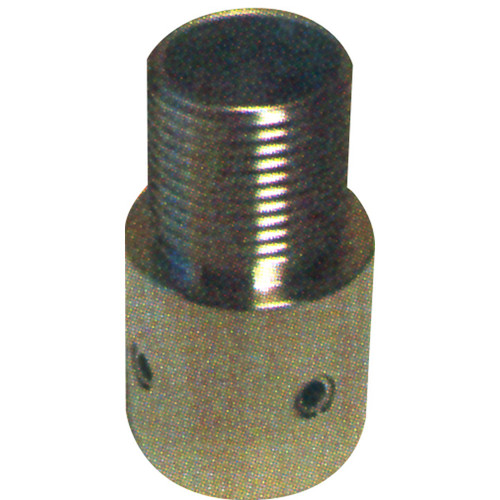-

Adjustable Stainless Steel Antenna Bracket
Stainless Steel Antenna Bracket This antenna mount has a flat base and is made from Stainless Steel. It is adjustable in both axis with a handle that allows the antenna to be lowered without tools. Fastenings not included. Part numberBase...
-

Adjustable ABS Antenna Bracket
This ABS antenna bracket is sturdy and corrosion resistant. It is adjustable in both axis with a handle that allows the antenna to be lowered without tools. Fastenings not included. Part numberDescriptionBase LengthBase...
-

Stainless Steel Antenna Tube Mount
This antenna mount, constructed from 316 Stainless Steel, is designed to fit over a 25mm (1 inch) tube. It allows an antenna to be mounted on a tube or rail. The included set screws can be used to secure this mount onto the tube. Part...
-

Stainless Steel Wind Direction Indicator
Stainless Steel Wind Indicator The Wind Indicator is lightweight, economical, durable and resistant to damage from birds and harsh wind conditions. The indicator attaches quickly to the top or side of your mast and is easily visible in all light...
Marine Electronics
Marine electronics are a vital part of any boat, providing navigation, communication, and entertainment. The most common marine electronics include:
- GPS/Chartplotter: This is a device that uses satellite signals to determine your boat's position and display it on a map. Chartplotters also typically have features for planning routes, calculating distances, and viewing weather forecasts.
- Multifunction Display (MFD): An MFD is a type of chartplotter that also integrates other marine electronics, such as radar, fishfinder, and engine monitoring. This makes it a more versatile and convenient way to view all of your boat's data.
- Engine Monitor: This device displays information about your boat's engine, such as RPM, fuel level, and temperature. This information can be helpful for troubleshooting problems and ensuring that your engine is running properly.
- Depth Sounder/Fishfinder: This device uses sonar to measure the depth of the water and locate fish. It is a valuable tool for both safety and fishing.
- VHF Radio: This is a radio that uses VHF frequencies to communicate with other boats and shore stations. It is an essential piece of safety equipment, as it can be used to call for help in an emergency.
- Wi-Fi and Cellular Range Boosters: These devices can extend the range of your boat's Wi-Fi and cellular signal, allowing you to stay connected even when you are far from shore.
- Battery Monitoring System: This device tracks the health of your boat's batteries, providing information such as voltage, current, and temperature. This information can be helpful for preventing battery problems.
- AIS: AIS stands for Automatic Identification System. It is a system that allows boats to transmit their position, course, and speed to other boats and shore stations. This information can be used to avoid collisions and improve situational awareness.
These are just some of the most common marine electronics. The specific electronics that you need on your boat will depend on your needs and budget. However, even a basic set of marine electronics can make your boating experience safer and more enjoyable.
Here are some additional tips for choosing marine electronics:
- Consider the size of your boat and the features that you need.
- Choose a reputable brand.
- Make sure that the electronics are compatible with each other.
- Have the electronics professionally installed.
- Keep the electronics clean and well-maintained.
With careful planning and installation, your marine electronics can provide years of reliable service.
